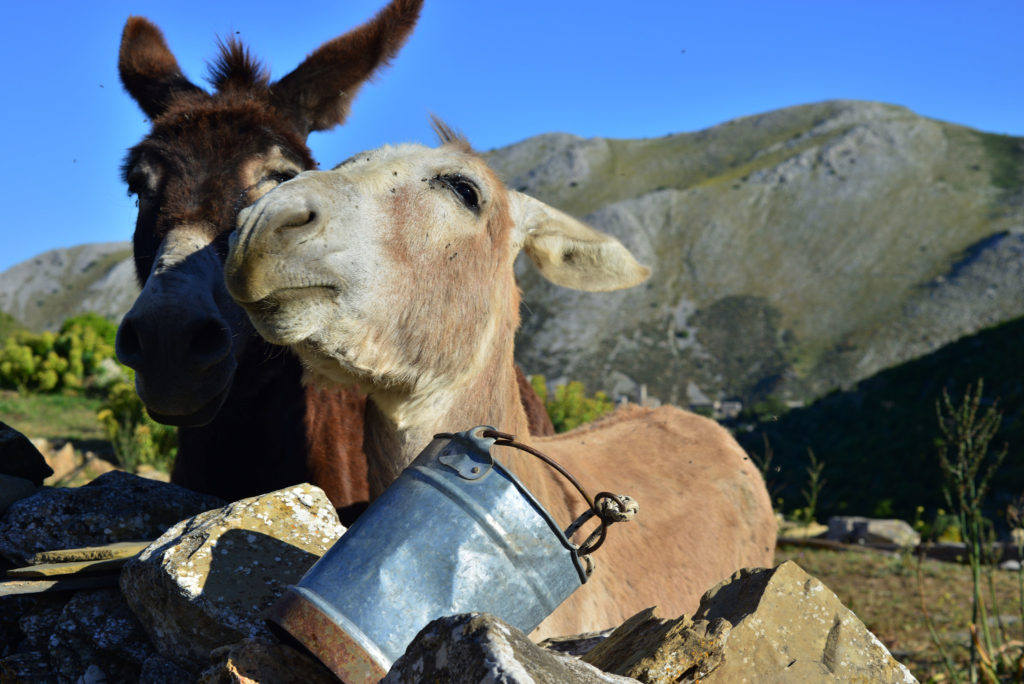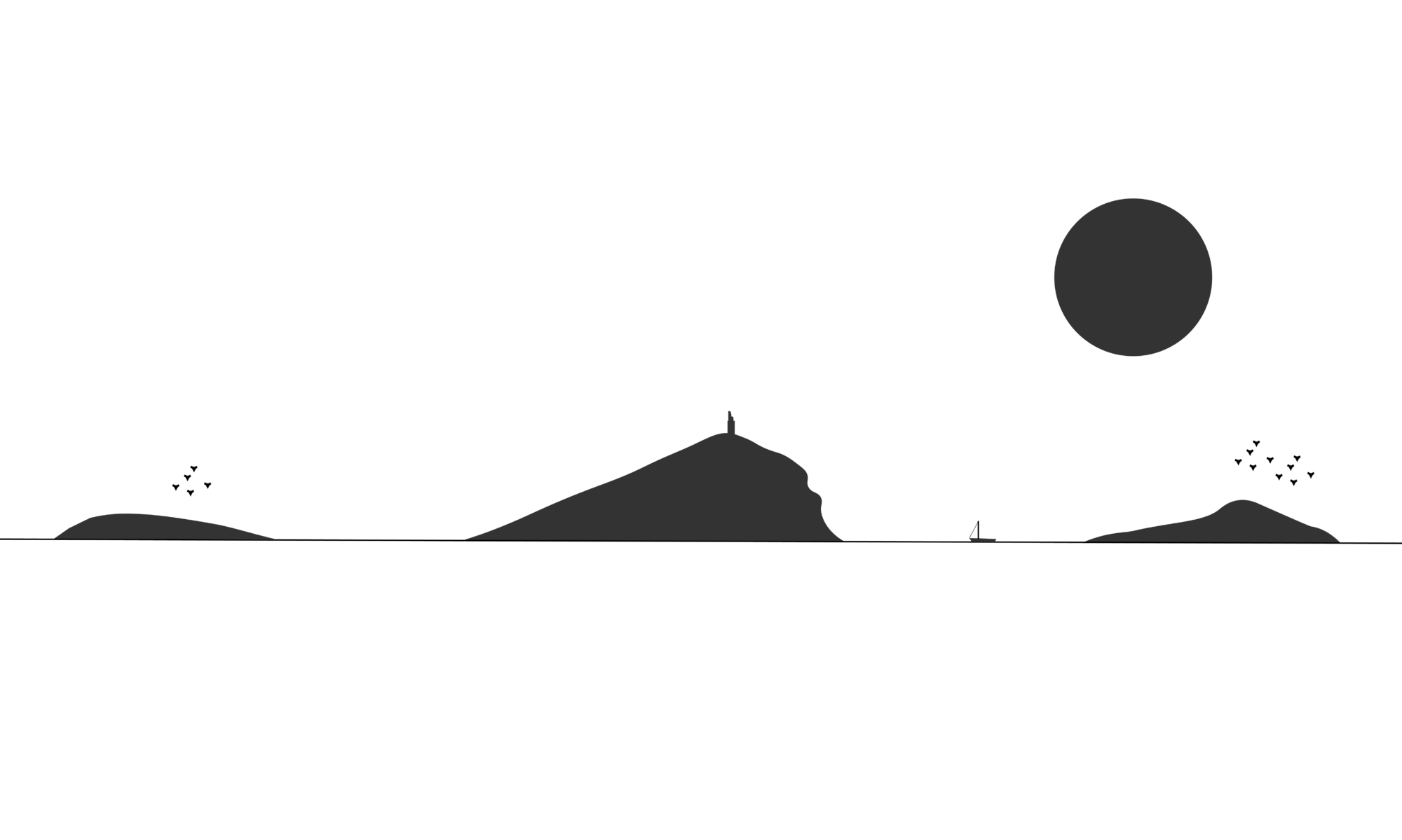Dr. Maeve McHugh (University of Birmingham) is a landscape archaeologist whose research focuses on agriculture, rural economies, and the lives of agricultural workers in Archaic and Classical Greece. She has worked on a number of archaeological projects in Greece during her career, and supervises a major component of the intensive survey on the BEARS project. In 2019 she led all of the fieldwork that took place on the Koroni peninsula leveraging her expertise in field methods to train a new generation of maquis-bashing survey archaeologists. We recently chatted with Dr. McHugh about her history in archaeology and her experiences working in the field in Greece. This interview has been condensed and edited slightly for clarity.
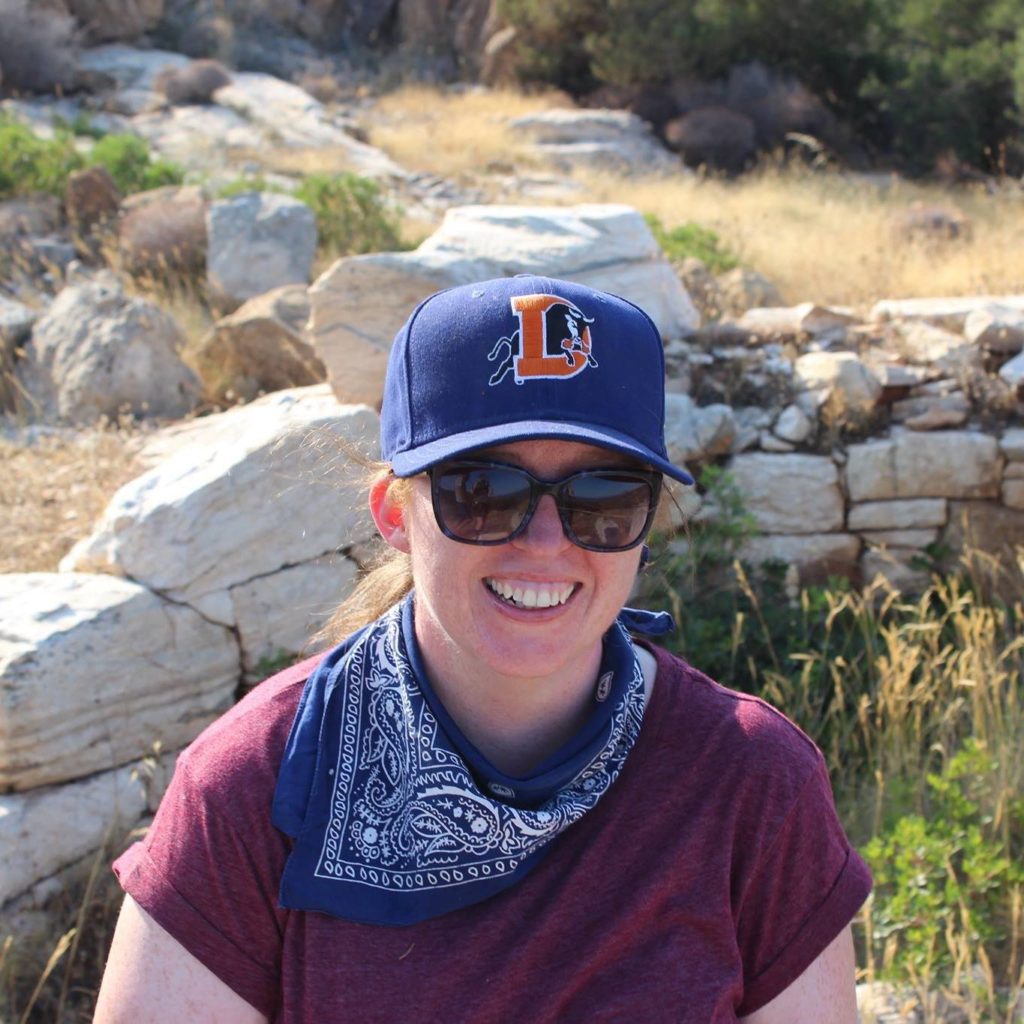
SCM: Thanks for agreeing to talk with me today! It’s nice to see you, even if it’s through a computer screen. But enough with the small talk: let’s get down to the business of this important interview. We’ve worked together in the field now for a while, but we didn’t really meet until we were both pretty advanced in our respective careers. Tell me how you got to that point – how did you get mixed up in this crazy career of Classical archaeology?
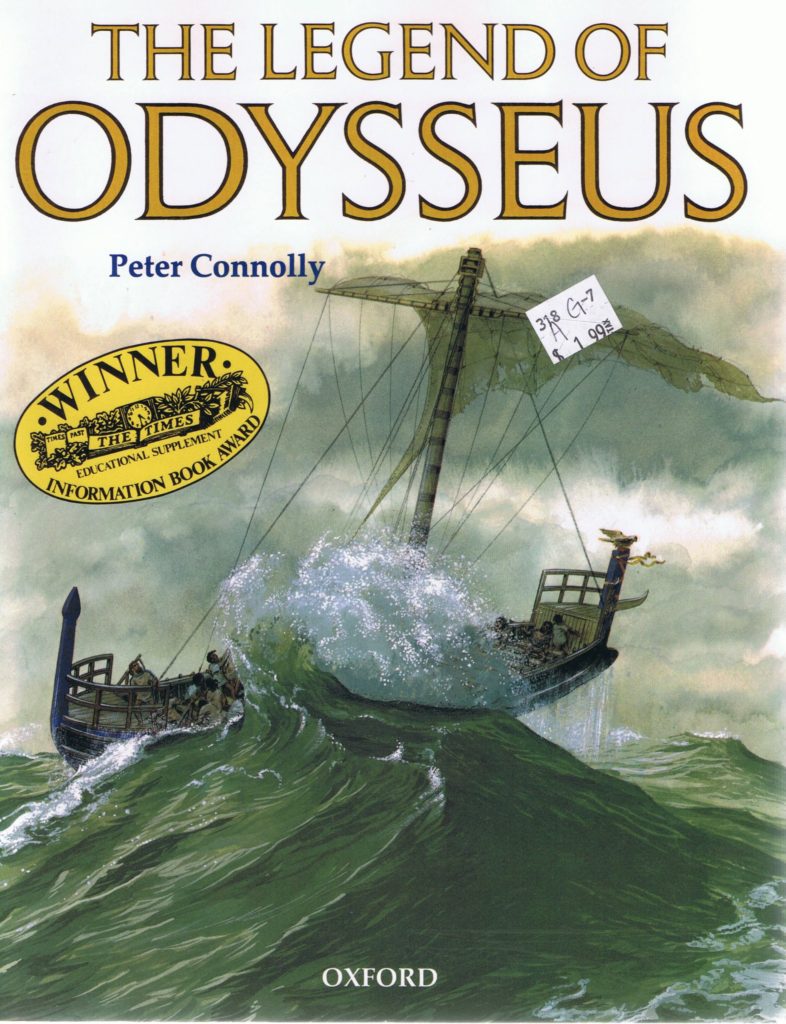
Around then I was talking to my sister and I said “I am REALLY loving this book”! I was about twelve, and she’s a bit older. And she said, ‘Well you know, that’s all an ancient civilization – Ancient Greece!’ And I said, ‘Hang on a minute here! You’re telling me this is real????’ And that just opened the floodgates and I haven’t been able to stop the flood since! The book had a companion with pictures of the Mask of Agamemnon and the Mycenaean grave circles, and all that stuff. My imagination was just absolutely taken up with it and I loved every second of looking through those books. So much so that my mum bought me a typewriter (this was before computers), and I actually started to type up my summary of the Iliad and the Odyssey! This was my first foray into academic scholarship – my brother brought home a red folder from work, and I put the summary into the red folder: my little treasure! My five-page synthesis of Homer – and of course an explanation of why Achilles was the coolest.
I distinctly remember my next pivotal moment was seeing a photograph of the Parthenon, and not believing it was possible that people could have built that. And also thinking about how amazing it was that they built it for a religion that I knew nothing about, and for a whole culture and a social system that I knew nothing about! When you’re a kid you’re brought up thinking there is just this one way of being and thinking, whatever one you are immersed in growing up. But that’s when I first started thinking about how there was this different culture that existed thousands of years earlier that was totally alien to my assumptions. I’d say only a very niche group of people worship Zeus or Athena now, but it used to be the whole thing! Everybody did it! And that just fascinated and intrigued me.
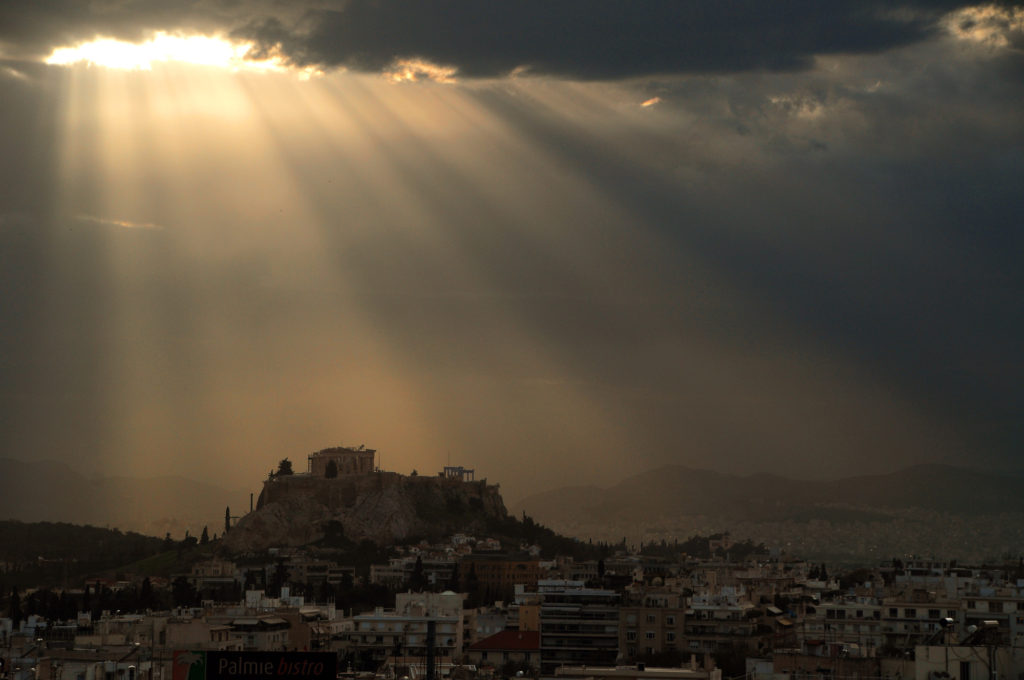
But it was definitely not something that I set myself out on a career trajectory to do. After I finished my exams, at the end of secondary school, I did a two-year course in equine science, because I was a very avid horsewoman. Then I went and I lived in Switzerland for a while, working in a yard there. But one day I had a quite serious fall, and I realized that, at age 21, I was getting ‘too old’ for this career! And I didn’t want to be one of those old people with broken knees and fractured skulls and things like that. So I went and got a job in a bank, which was quite soul-destroying. I started my degree at University College Dublin (UCD), doing English for two years, but I still thought that wasn’t quite for me. I decided I’d go to Italy and teach TEFL (English as a foreign language) there. And that was the first time that I had ever actually seen all of these things in the flesh that I used to be really fascinated by – the theater at Verona, all the ruins in Rome, Greek pottery. And then I said to myself, ‘Why not? Why not do a degree in it?’
So I switched majors from English to Classics and Archaeology at UCD, working all during the day, still in a bank selling loans, which continued to be – as I noted – absolutely soul-destroying. This was actually just before the financial crash in 2008, so I had a very small part to play in that crash! But I started into the degree and that was it – I knew this was something that I wanted to do.
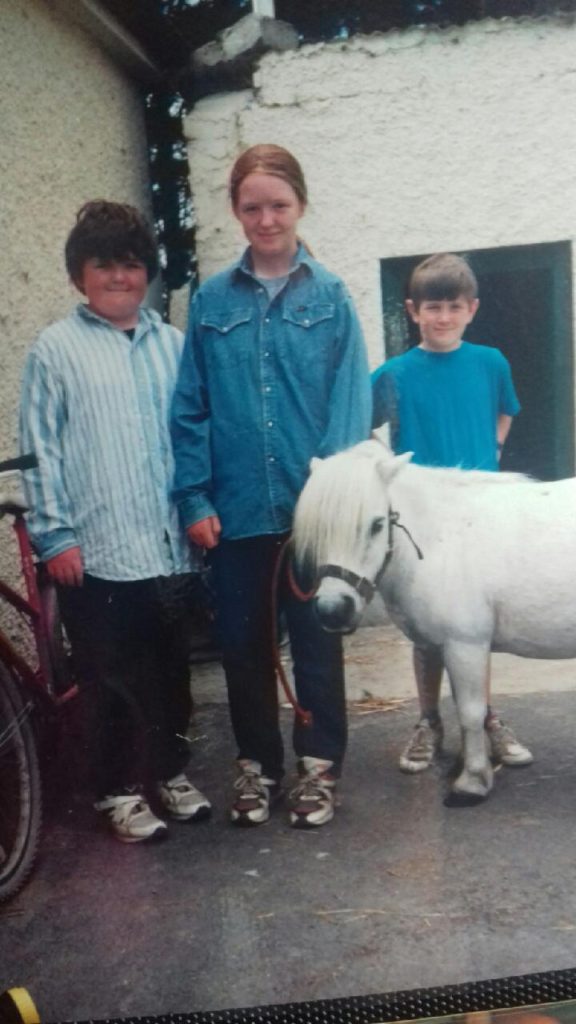
SCM: What amazing stories! I feel like there is a valuable lesson there about the importance of public libraries for kids out there, especially working and middle class kids without fancy educations.
MCM: Absolutely! I actually found that book many years later and went and bought a copy, and when I held it in my hands I was immediately twelve again.
SCM: On the topic of the Odyssey, it sounds like your journey to archaeology and Classics has been an odyssey in itself! I think we as a field are lucky that you ended up where you did, because you’re doing really world-class research these days. You’re already the author of a groundbreaking book on ancient farmsteads and now I know you’re making progress on a second book project on the larger topic of agricultural labor. How did you get into this particular area of research and what interests you about it?
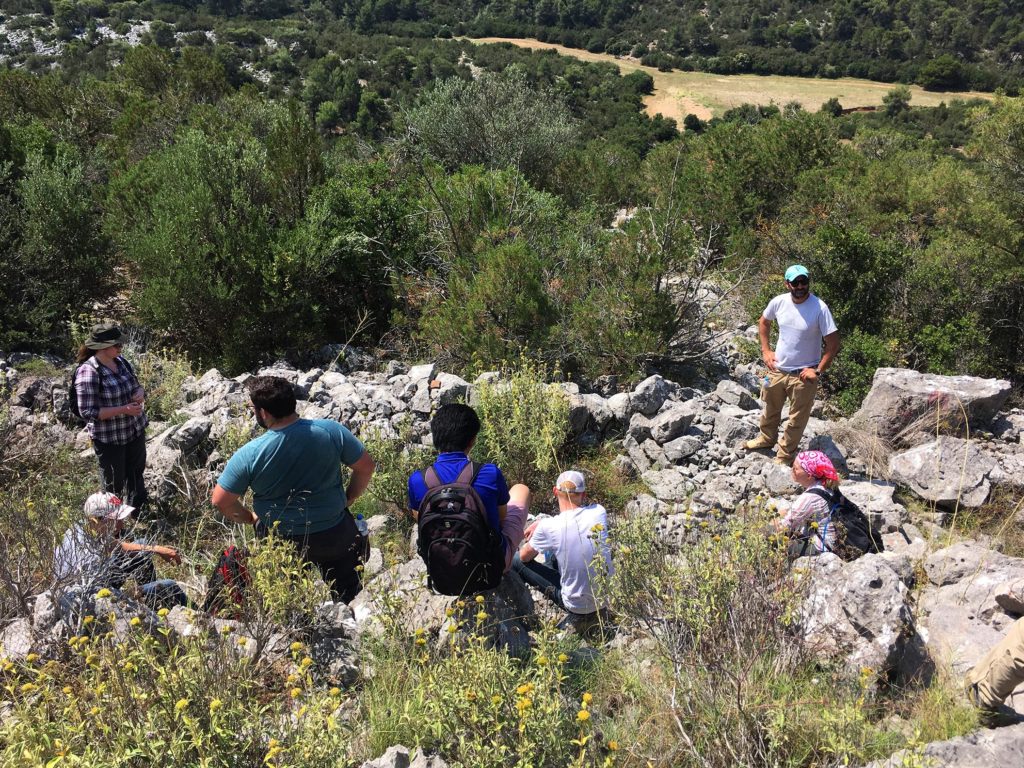
MCM: When I started to do my PhD at UCD, I thought I was going to do a PhD on urban houses. But several books had recently come out about houses, and I really didn’t think I had anything new to say on the topic. I started to do more reading, and got into reading quite a bit about landscape survey. I was seeing this word ‘farmstead’ pop up quite often. And I started to get really intrigued about what was going on with these farmsteads, because I’d never really thought about where people lived outside the city, or whether they did live outside of the city. Then I realized after reading that it’s actually quite a contentious topic: whether farmsteads existed or not, how do we identify them, and so on. So I thought, AH HA, this is a question I want to try to answer.
So I did! And I published my book, and then leading on from that, I started thinking about what I thought and experienced when I was hiking through the landscape in Greece. I’ve been very lucky through the years to work on projects where I’ve had the opportunity to go hiking in the landscape: with you, and with our colleague and friend Syl, where we wander around trying to find these ancient roads and ancient sites. I find the idea of what it was actually like for people to live in these places and work in this landscape really intriguing.
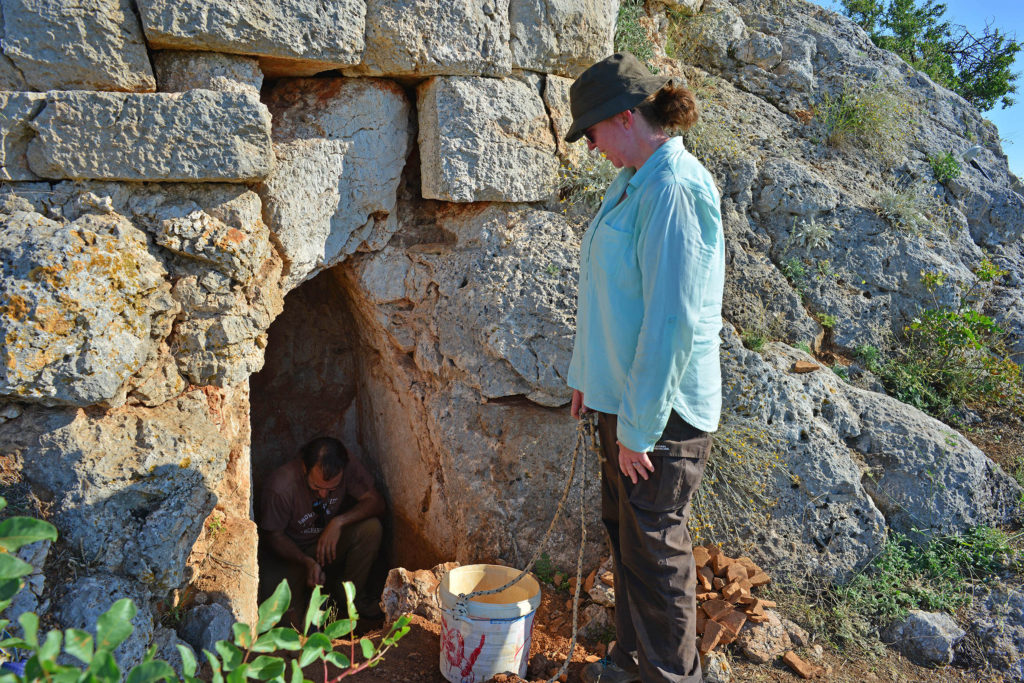
I did a bit more reading about agricultural work and found there were work songs, and fables about work and all this other evidence for what went on in ancient Greece beyond just the fancy shiny temples of the Acropolis. So I concocted a project aimed at figuring out what it was like to be a ‘normal’ person back then. Only a very small percentage of the population of the ancient world, or even up to and past the Industrial Revolution, was ever living in cities and engaging in trade and commerce and all that stuff we know a lot about. The vast majority of society – people living outside of all that – are usually kind of left out of the story. And those people are the kinds of people I associate with myself. My family wasn’t poor, but we definitely were people focused on work, getting paid, keeping a roof over our heads, that kind of stuff. So I guess that makes me more interested in what those kinds of concerns were like in the ancient world and what people like me and my family would have dealt with back then.
That’s also why I get so excited when I am actually in the Greek landscape. I mean, when I first saw the Parthenon of course I sort of lost my mind, but after that the shine kind of wears off. When I’m in a landscape – and I know this is a little bit romantic – seeing the shape of the mountains, that hasn’t really changed: I’m looking at the same shape of the mountains that an ancient farmer would have looked at. And that for me is a very evocative and exciting thing.
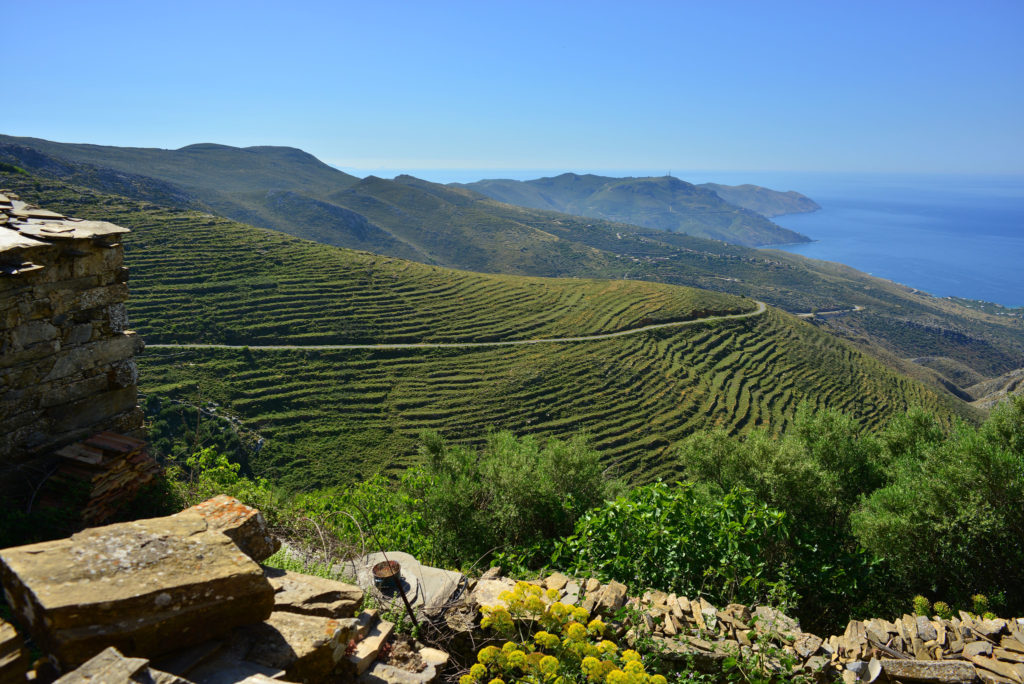
SCM: Well, it’s super cool research, and I agree that it’s important to try to appreciate what most people’s lives were like rather than obsessing over these indolent academic types who sit around reading and writing all the time! Now, imagining an ancient farmer on an ancient farmstead: if you were an ancient farmer, what would have been your favorite crop and why?
MCM: My favorite crop would be olives for making olive oil. And vines as well.
SCM: No, you only get one crop!
MCM: Fine! Olive oil, then, because of the economic return.
SCM: Ah I see your old bank loan officer persona emerging here!
MCM: Yeah, you see, a part of my soul has been permanently destroyed by that job! For sure the best crop would be olives for oil.
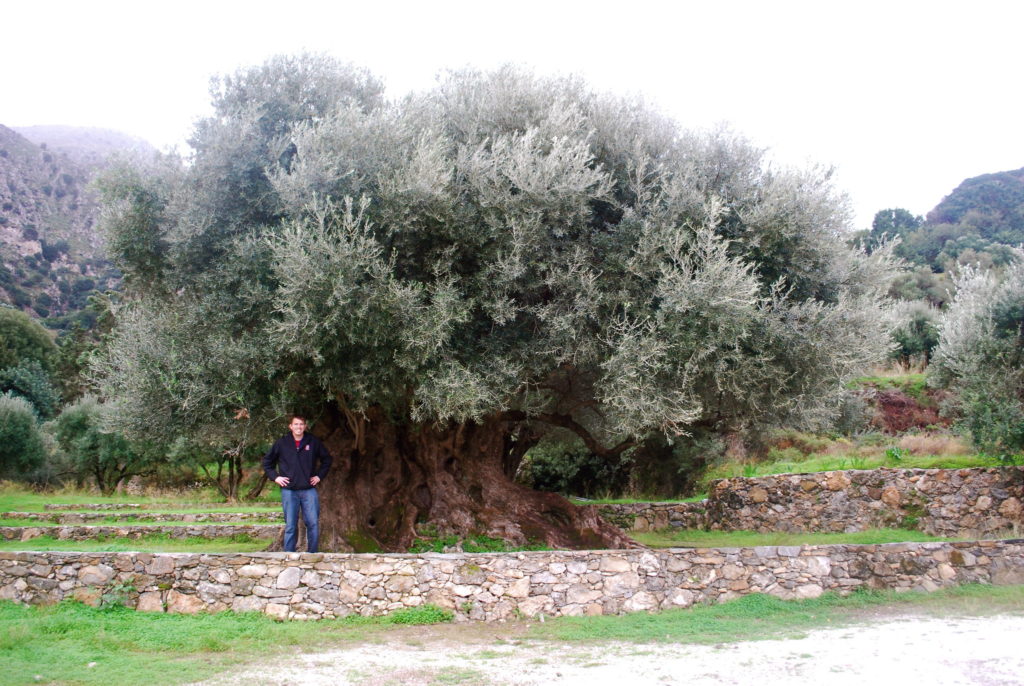
SCM: I’m more of a barleyphile myself, but here we can agree to disagree. Okay, now sticking with the topic of work, and having worked with you in the field, I’ve noticed that you’re an incredibly hard worker and never shy away from a difficult task. You also basically never complain in the field. Where do you think your steadfast work ethic and positive attitude come from? How do you manage the physical difficulties of survey work with such elegance and aplomb?
MCM: I’d say the reason is that I feel like I’ve won the lottery. I’m doing something that I shouldn’t really get to be doing. I was told by a career counselor at school that I should look at administration level jobs, not that there’s anything wrong with them, but I couldn’t imagine working in that type of work for my entire life. I’ve worked all kinds of jobs, most of them not so great, and the fact that I get to go to Greece and ramble around in the countryside and find pieces of ancient pottery – are you kidding me?? This is the best thing ever.
It’s always funny to talk to my family about it – my brothers don’t think I have a real job. They’ll say, ‘Well your reading isn’t actually real work.’ And my mum, she always asks me how school is, and I think she thinks of me more like a secondary school teacher. They are always very surprised that I’m doing research. But I totally understand why they think it’s so alien – for me it seems very alien too. I just love being able to do this stuff and it’s not a chore, it’s not difficult. Anytime I do find it difficult I remind myself that I’m in this amazing Greek countryside holding an amphora handle in my hand, and I just value every minute of it.
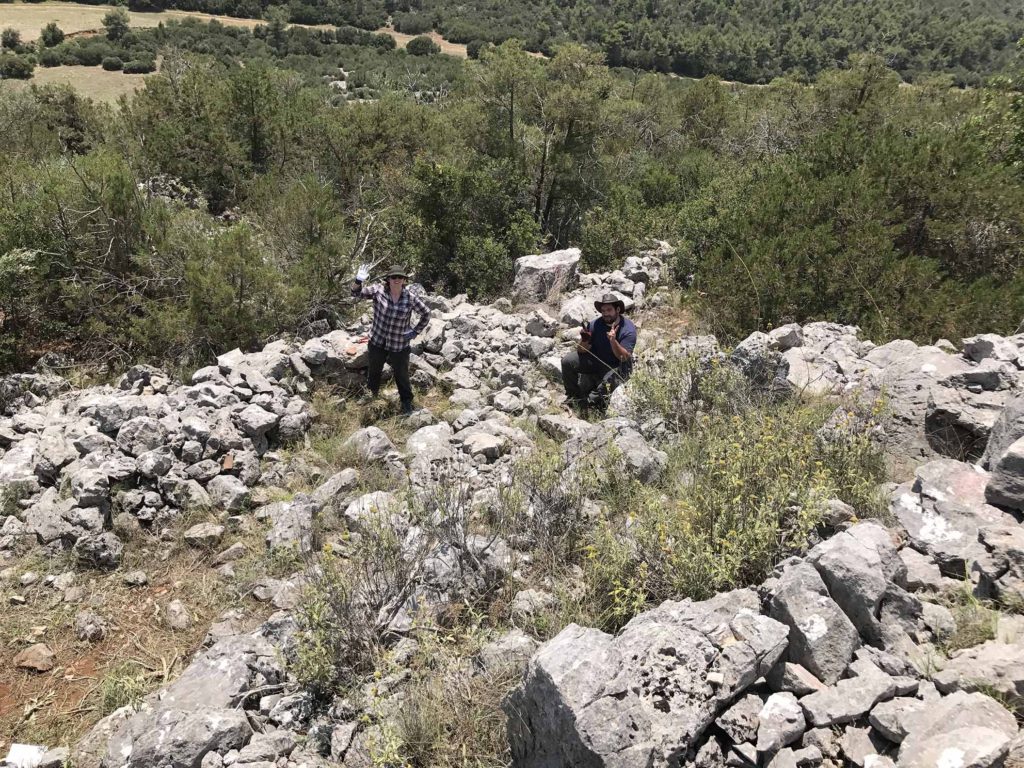
SCM: What a great attitude. We should always remember how lucky we are to have such an amazingly cool and interesting line of work!
MCM: Yeah – six weeks in Greece: you say that to anyone and they just can’t believe that’s part of your actual job.
SCM: It sure makes you wonder why anyone ever complains. And yet some do! Now, in terms of fieldwork: what makes you love survey so much?
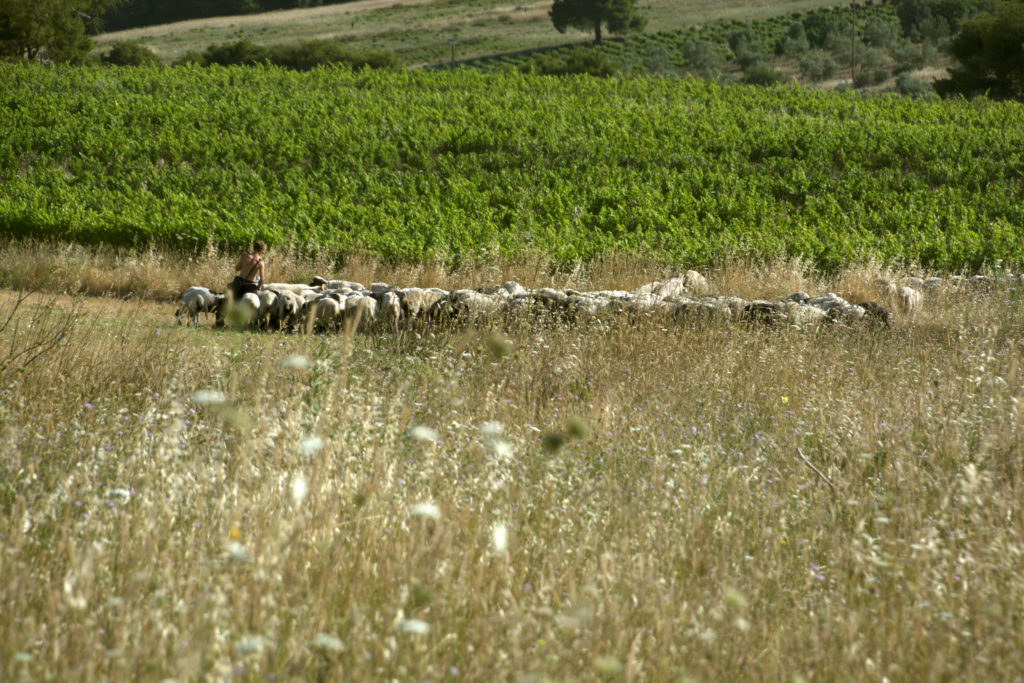
MCM: Survey addresses a lot of different types of questions that you can’t address through excavation, and the nature of my research just fits much more naturally with those survey questions. You just get more out of landscape survey when you’re interested in agricultural activity, because you see what is happening in the landscape more broadly, rather than getting a lot of information about one place and trying to extrapolate information from that. Every farm’s agenda is going to be different depending on the particular situation in the landscape. Even if you could say that people are farming in one way in a particular place, it can’t necessarily tell you what is going on everywhere. So in that way survey is extremely well suited to produce helpful results for my research.
I also really like the big diachronic scope of survey. In survey you find all kinds of stuff from the whole history of human activity in an area: from the first time that people went out into the landscape and started chipping away at stones and decided that some stones were fancier than other stones, all the way to what pastoralists are doing in the present day. That to me is totally wonderful. I think I’m just a survey archaeologist to the very bone marrow. I just love it. It’s so cool to be wandering around in the hills and to come across a totally pristine site! It is really something special.
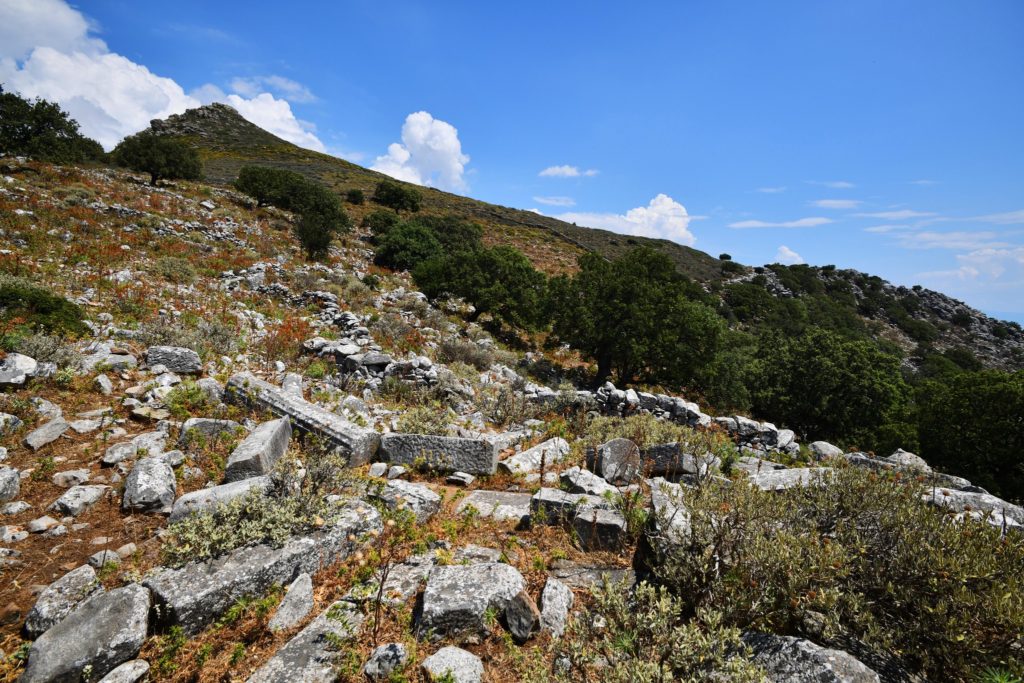
SCM: How about the BEARS project – what drew you to the project and was your experience of the fieldwork like?
MCM: We’d worked together before on the Mazi Archaeological Project and gotten along quite well, and I was really grateful to get to come on the project! You’re an excellent scholar and an excellent friend and it was just a brilliant opportunity and I was excited to grab it with both hands.
The survey itself is absolutely tremendous. Grace and I were always in absolute shock at the kind of material we were collecting on the ground, it’s just unbelievable. It is a four-star A+ level of survey, not only in the types of material culture that we’re collecting and the type of resolution and detail, but also the way it’s organized and structured – I just thinks it’s a tremendous survey on several levels: I could wax lyrical about it until the cows come home.
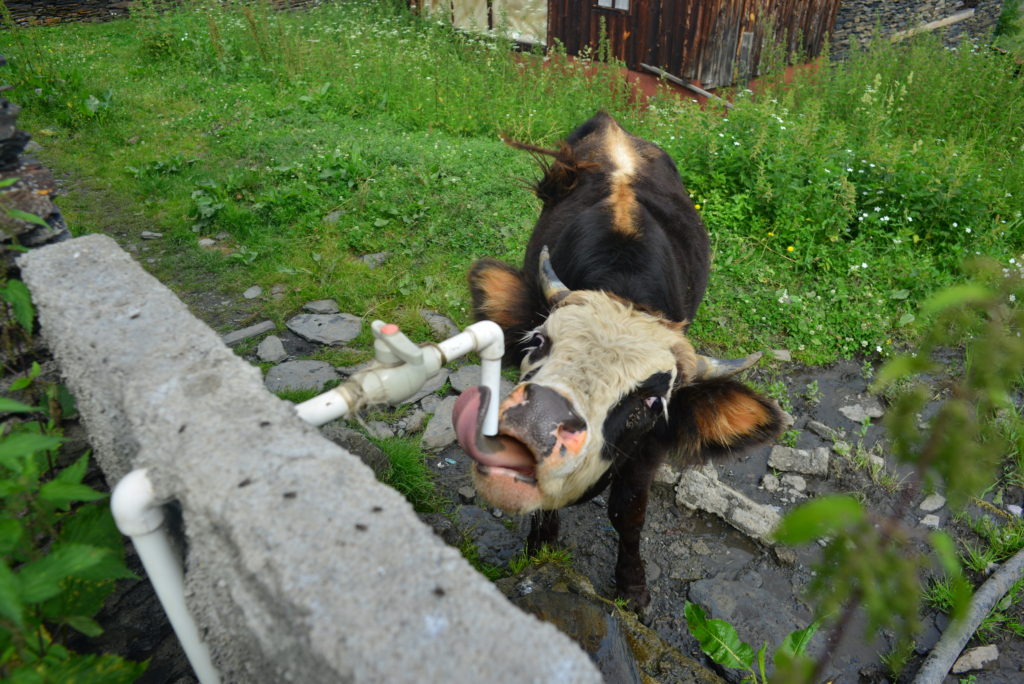
SCM: I’m glad you’ve had a good experience! We’ve definitely benefited a lot from having you on board. Hopefully we get to go back out there someday. You mentioned before how much you appreciate the chance to work in Greece. What do you like particularly about research and fieldwork in Greece?
MCM: Well, I’m Irish – I have red hair and very, very, very, very pale skin – so it’s not the weather! It’s a constant battle not to be fried within an inch of my life there in Greece! I am not built for the Greek climate unfortunately. But I do appreciate the heat and the warmth. The food of course is just tremendous: fresh, delicious, local. The people and the lifestyle are really appealing – everything is very relaxed and calm, not panicked. I like all that stuff. I suppose I am looking at it through rose-tinted glasses because I’m there for fieldwork. If I lived there for an extended period of time I might have a very different perspective. Another thing I love about it is just that you can go out into the countryside and be at an archaeological site in ten minutes! That’s pretty great if you’re interested in the ancient past.
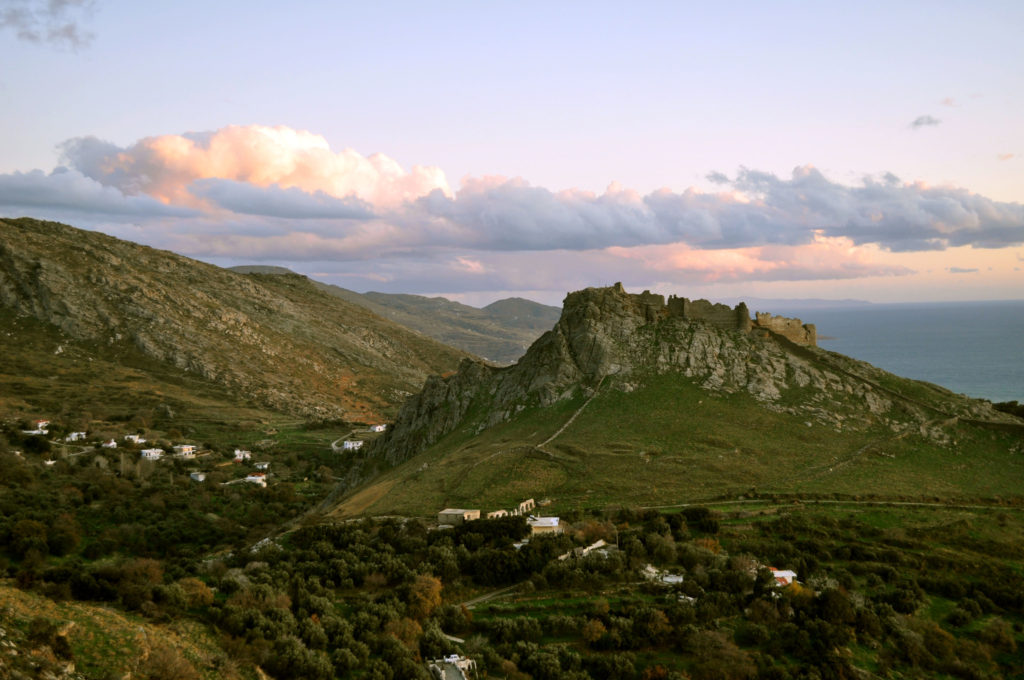
SCM: Right, it’s very hard to do that where I live in downtown Toronto for sure! I haven’t seen a countryside in months! How about Porto Rafti – did you like it as a place to live and work?
MCM: Porto Rafti was a really nice town for a project because you could access all kinds of shops without any difficulties. And our accommodation was incredibly luxurious, so we were very well looked after. One problem was that you took your life in your hands at the weekend trying to cross the road. That was a real challenge! Loads and loads of Athenians descended onto the town on the weekends.
There is a gated beach that tons of people would come and pay to get into just below the Koroni acropolis where I worked for most of the season. One day we were working on Koroni and we could hear the people sitting on the beach below us, and we were having a snack, and I turned to my team – two students, Irum and Kat – and said: ‘I feel like this is about to be the judgement of Paris, with the three of us sitting out here in the middle of nowhere and waiting for a shepherd to come along.’ But then just below us there was this really very 21st-century, trendy, modern beach thing going on and we could hear all of the beachgoers laughing and talking! That’s something that I both loved and disliked about working around Porto Rafti – the archaeology was really living cheek by jowl with modern society.
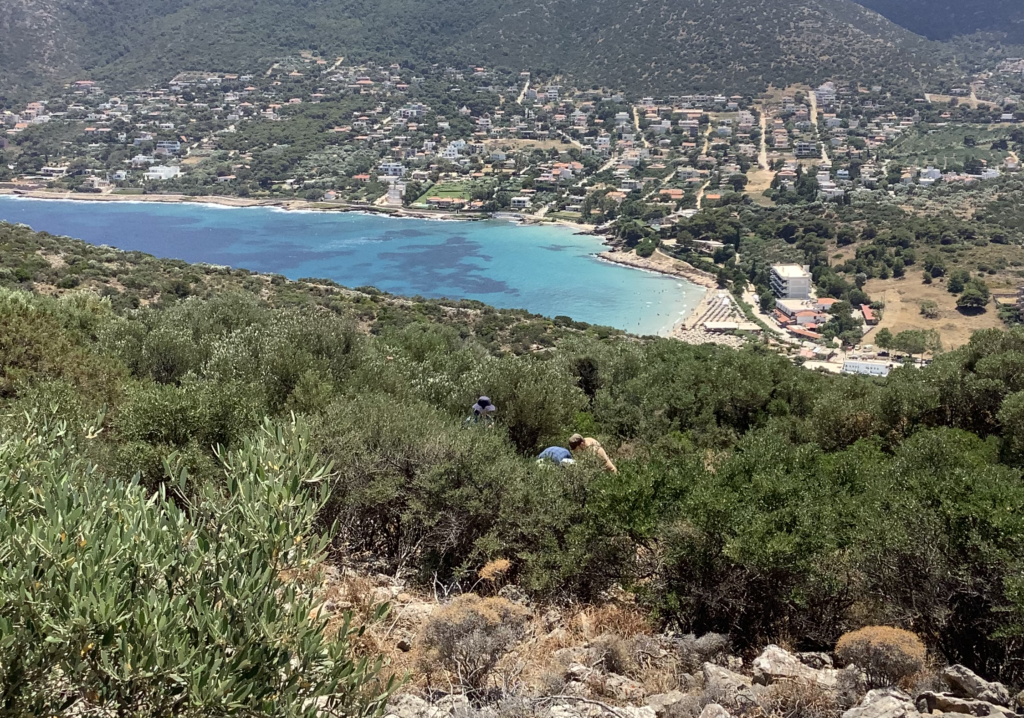
SCM: Yeah good point! It’s a funny place for an archaeological project in that sense. I guess it’s kind of bittersweet to be reminiscing about BEARS this summer when we can’t really be there and had to cancel the season. Aside from going back to Greece for fieldwork, what are you most excited about doing again once things go back to normal (if they ever do!)?
MCM: Probably talking to someone who isn’t my partner in actual three dimensions. And standing closer than two meters away from someone in an acceptable way. This physical isolation, even though it’s pleasant at times, has been very challenging. I’d probably want to hug a friend. Definitely not going to the shops. I don’t know who would go to the shops when you can just buy things online.
SCM: Excellent answer! Thanks so much for talking to me today Maeve, and here’s to some friendly hugs someday.
